THE BEATLES' SINGLES BRIEF DESCRIPTION
|
"Ain't She Sweet"
is a song composed by Milton Ager (music) and Jack Yellen (lyrics) and published in 1927 by Edwin H. Morris & Co.,
Inc./Warner Bros., Inc. It became popular in the first half of the 20th century, one of the hit songs that typified
the Roaring Twenties. Like "Happy Days Are Here Again" (1929), it became a Tin Pan Alley standard. Both Ager and
Yellen were elected to membership in the Songwriters Hall of Fame. The Beatles performed it live from 1957 till 1962.
John Lennon's vocal rendition was different from Gene Vincent's, it would seem that he arranged his own unique
version", he concluded by saying "He may have also been influenced by Duffy Power's 1959 version". The Beatles
rock and roll arrangement of "Ain't She Sweet" was recorded by the group with John Lennon on lead vocals, while
recording as Tony Sheridan's backup band on June 22, 1961 at the Friedrich-Ebert-Halle, Hamburg, Germany with Pete
Best on drums, produced by Bert Kaempfert. The recording was released as a single on May 29, 1964, on Polydor (UK),
and was included on the Anthology 1 album in 1995.
|
|
"Cry For A Shadow"
is an instrumental rock piece recorded by the Beatles on 22 June 1961. They recorded the song at Friedrich-Ebert-Halle
within the gymnasium, Hamburg-Harburg, Germany while they were performing as Tony Sheridan's backup band for a few
tracks, under the moniker the Beat Brothers. It was written by George Harrison with John Lennon, as a parody of the
Shadows style. (The Shadows, who backed Cliff Richard, were the biggest British instrumental rock & roll group at the
time of the recording.) It imitates the lead guitar with typical Hank Marvin licks, the melodic bass fills, and even
has an imitation during the second middle eight of the famous Jet Harris yell. It is the only Beatles track to be
credited to Lennon and Harrison alone. It was intended to be released as the B-side of "Why", another Sheridan song
with the Beatles, but the record company chose to release another song instead. In early 1964, as the Beatles were
gaining popularity, the record company Polydor decided to release it, with "Why" changed to the b-side.
"Cry for a Shadow"'s original title was "Beatle Bop". "Cry for a Shadow" is one of only two officially released
Beatles singles to feature Pete Best on drums. The other is "Ain't She Sweet," although it's alleged that studio
drummer Bernard Purdie "sweetened" the drum parts on this recording for American release.
|
|
"My Bonnie"
was first released in October 1961 in West Germany. A Beatles fan in Liverpool named Raymond Jones requested the
single at Brian Epstein's record shop, which led to Epstein becoming interested in and eventually managing the Beatles.
The German import became popular in Liverpool, and Epstein secured a British release on 5 January 1962, credited to
Tony Sheridan and the Beatles. After the Beatles gained fame several songs from their sessions together were released.
"Sweet Georgia Brown/Take Out Some Insurance" was released as a single in 1964. Although "Take Out Some Insurance"
was from the June 1961 sessions, the A-side was not. Backing tracks to "Sweet Georgia Brown" and "Swanee River" were
recorded by the Beatles 24 May 1962. This session was arranged by Brian Epstein and Bert Kaempfert to free the Beatles
from their contract with Kaempfert and Polydor. Sheridan's vocals to "Sweet Georgia Brown", referencing the Beatles'
fame, were added later. These versions of "Sweet Georgia Brown" and "Swanee River" are not the recordings featured
on My Bonnie.
|
|
"From Me to You"
is a song written by Paul McCartney and John Lennon and released by English rock group the Beatles in 1963 as their third
single. The single was the Beatles' first number one in some of the United Kingdom charts, second in others, but failed
to make an impact in the United States at the time of its initial release. However, a 1963 cover version released by Del
Shannon resulted in the song becoming the first Lennon–McCartney tune to enter the American pop chart.
|
|
"Komm, gib mir deine Hand" / "Sie liebt dich"
(English: "Come, Give Me Your Hand" / "She Loves You") was a single released on 4 February 1964 by The Beatles in
Germany. They are the German language versions of "I Want to Hold Your Hand" and "She Loves You", respectively,
and were translated by Luxembourger musician Camillo Felgen, under the pseudonym of "Jean Nicolas". "Sie liebt dich",
along with the original "She Loves You" B-side "I'll Get You", was released as a single in the United States on 21
May 1964. This release reached No. 97 in the Billboard Hot 100. Both tracks are currently available on the Past
Masters double CD compilation by The Beatles, most recently remastered in 2009 with the rest of the band's discography.
|
|
"the Inner Light"
is a song by the English rock group the Beatles, written by George Harrison. It was released on a non-album single
in March 1968, as the B-side to "Lady Madonna". The song was the first Harrison composition to be issued on a Beatles
single and reflects the band's embrace of Transcendental Meditation, which they were studying in India under Maharishi
Mahesh Yogi at the time of the single's release. After "Love You To" and "Within You Without You", it was the last of
Harrison's three songs from the Beatles era that demonstrate an overt Indian classical influence and are styled as
Indian pieces. The lyrics are a rendering of a poem from the Taoist Tao Te Ching, which he set to music on the
recommendation of Juan Mascaró, a Sanskrit scholar who had translated the passage in his 1958 book Lamps of Fire.
Harrison recorded the instrumental track for "The Inner Light" in Bombay in January 1968, during the sessions for
his Wonderwall Music soundtrack album. It is the only Beatles studio recording to be made outside Europe and
introduced Indian instruments such as sarod, shehnai and pakhavaj to the band's sound. The musicians on the track
include Aashish Khan, Hanuman Jadev and Hariprasad Chaurasia. Aside from Harrison's lead vocal, recorded in London,
the Beatles' only contribution came in the form of group backing vocals over the song's final line. In the decade
following its release, the song became a comparative rarity among the band's recordings; it has subsequently
appeared on compilation albums such as Rarities, Past Masters, Volume Two and Mono Masters.
|
|
"You Know My Name (Look Up the Number)"
is a song by the Beatles originally released as the B-side of the single "Let It Be" on 6 March 1970. Although first
issued with their final single (penultimate single in the United States), it was recorded in four separate sessions
beginning with three in May and June 1967, and one in 1969. The song is a music hall comedy number. Lennon came up
with the lyric/title after seeing a phone book.
|
|



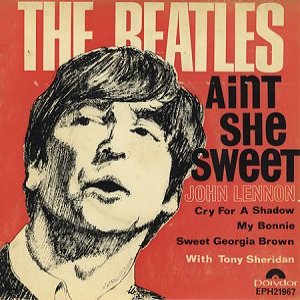
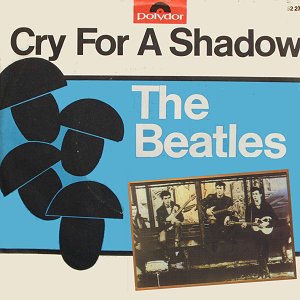
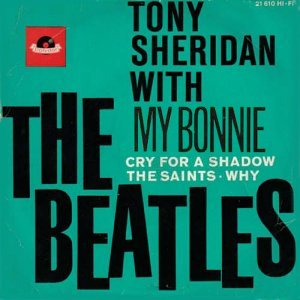
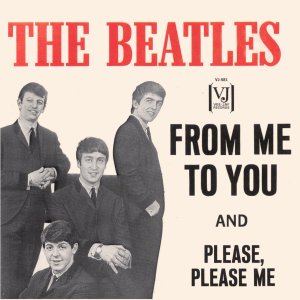
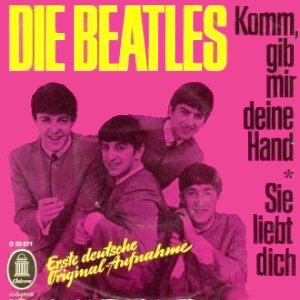
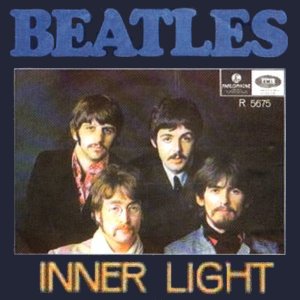
.jpg)






























